The Souvenir has been one of the most talked about films on the festival circuit this year, and now is finally readying itself for its UK release. To mark the occasion we had the pleasure of sitting down with auteur Joanna Hogg, as she discusses a film that is based on her own experiences. This leads into a chat about nostalgia, and cathartic nature of putting so much of yourself on screen. She also addresses the film’s paramount theme of loss, and why she feels it’s so important to take risks, before responding to the criticism that the film is about privilege, as she explains firstly why that isn’t the case, and secondly why she feels this is a problem she’ll only have to face with UK audiences. Finally, we get her talking about her next exciting project… The Souvenir Part Two.
You’ve put so much of yourself into this movie – but to what extend was this autobiographical, and how much was fictionalised?
I don’t know myself, now! We’ve just finished filming part two, which talks a lot about autobiography in a way. It definitely starts off very personal, when I’m on my own and I’m writing and researching the story and the sort of springboard for it were diary entries, my former work as a young filmmaker before I was a film student, photographs and films and ideas that I wrote down, so all of these things are the materials I begin with. And also my memory, I don’t feel I have a very good memory. What was interesting in exploring my past in this way is that we think we only have the memories we have, but actually I know believe strongly that we can bring memories back that we thought were long forgotten, and I found particularly by creating the apartment that I once lived in, we built a set of the apartment in an aircraft hanger, and conjuring up this actual space, and I was standing in this recreated flat and more memories came back to me.
I find my strongest senses of nostalgia and memory comes from places I’ve lived in. I guess maybe it’s because when we leave, we can’t go back, it’s not like a person you can meet again for a drink. It must’ve been quite overwhelming at times to see the flat again, in front of you?
It was, and it continuously surprised me and confused me, actually. You saying that about spaces and memories, I think all my other films have been about places and a memory of a place, so I’m really interested in that. But it was the first time I’d actually build a set based on somewhere that I knew.
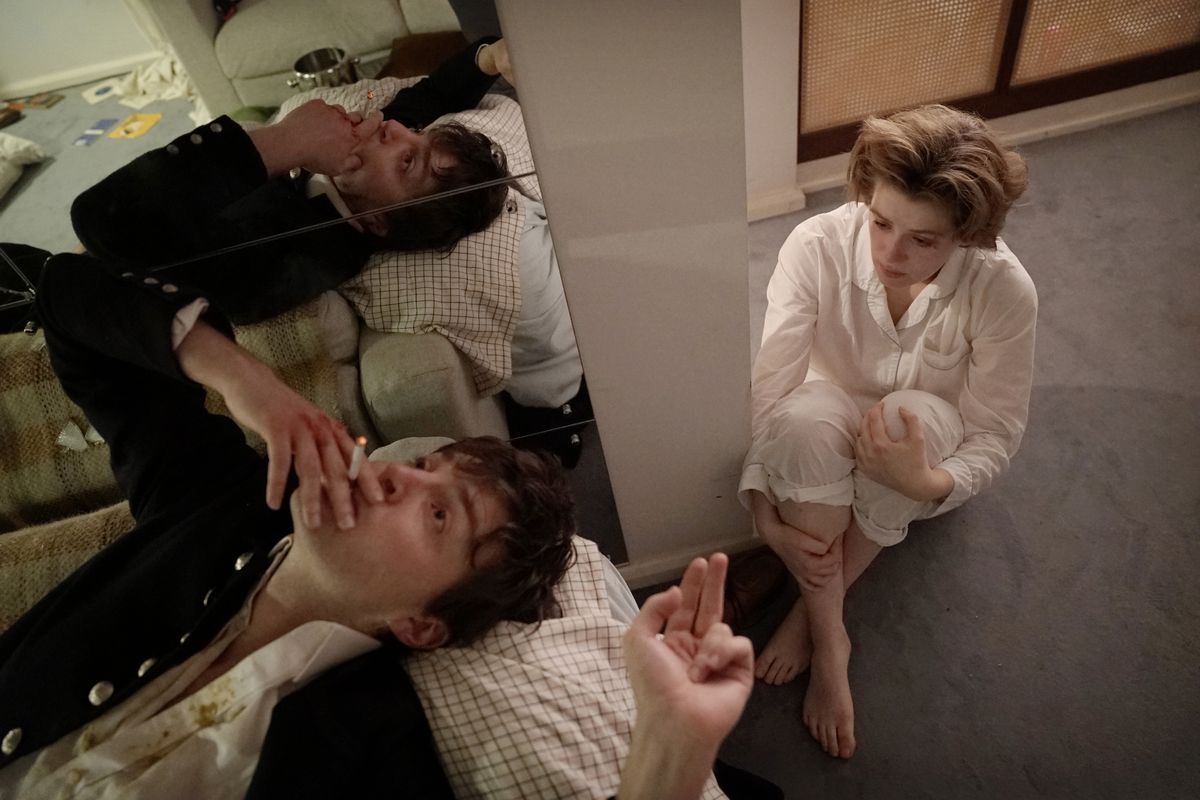
Would you call this your most personal film to date? And why did you decide to tell this story now? I feel like directors telling stories based on their own experiences is something that would usually go into their first or second movie. So why has it come at this stage in your career?
I think because I’m realising the value of our past lives, and maybe I’ve got a little bit more respect for myself now, and who I was. When I first started making films I don’t think I put a value on that, I was interested more in the present moment. Looking back takes some effort in a way. Because you’re right, a lot of filmmakers or writers start with their autobiography and then move away from that. But to answer your question about whether this is more personal than my other films, I wouldn’t say that it is, they’re all personal in their own way, and all of them, because of the nature of the way that I make films, they become something else, they don’t stay personal all the way through the process, otherwise I think it would be too much, too intense. It’s always the beginning of the process when I’m doing the research and the writing, and I’m on my own – that’s when it can be quite painfully personal, but as soon as I start casting and designing, working with my collaborators, a lot of other things are coming in.
So when directing and giving advise on how the characters should feel in a certain scene – are you almost trying to remember how you felt in that moment, or are they treated very much as characters in their own story?
I try not to do that, I won’t say, ‘oh I would’ve said it like that’, because I also think it’s not interesting, because I’m interested in them, I’ve cast that person for a reason because of what they’ll bring to the role and I don’t want to constrain them in that way. Of course if I feel that it’s diverting too far from the story I’m telling then yes, I’ll pull things back, but I’m not trying to get them to be a version of myself, or someone I knew.
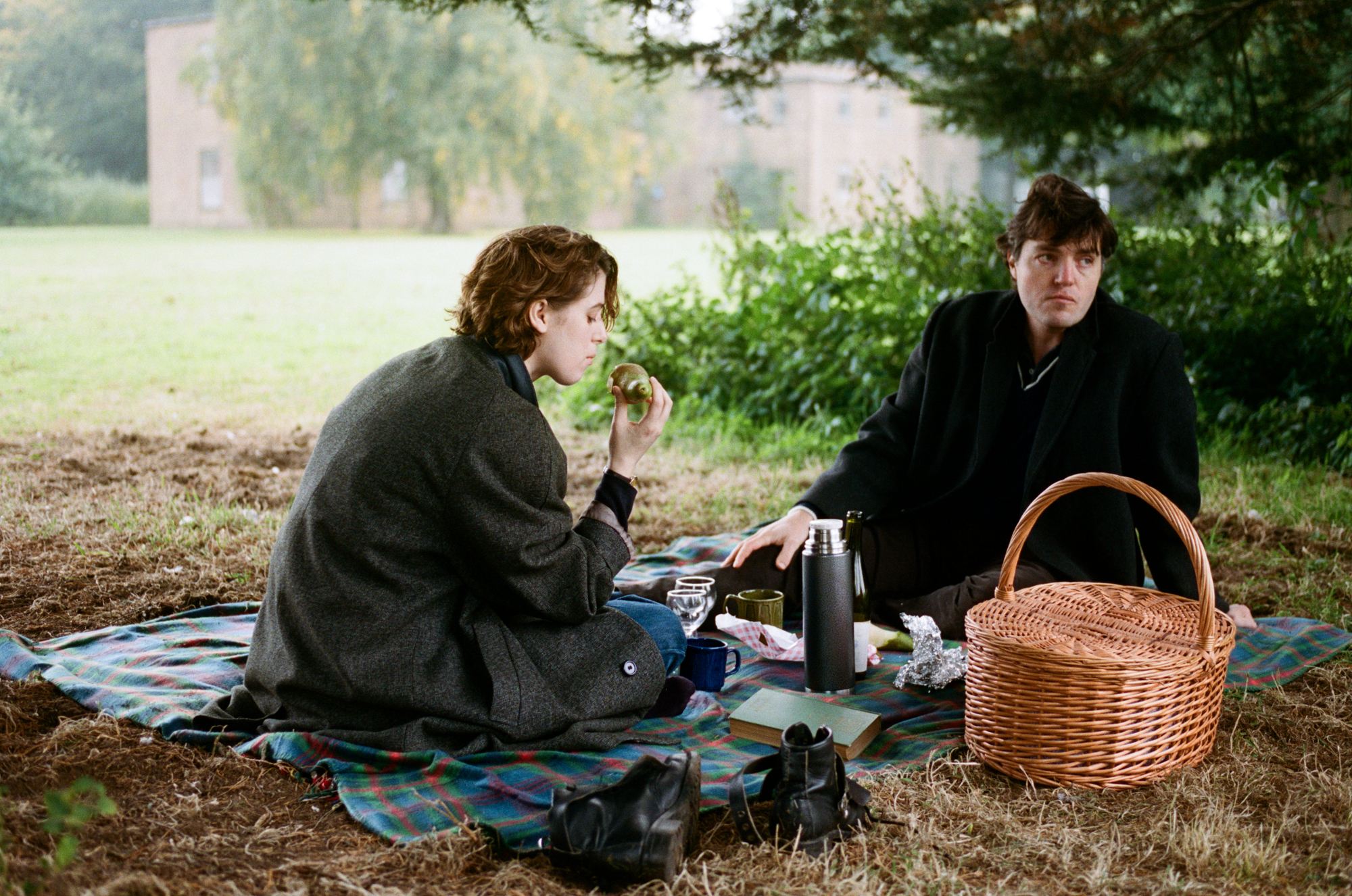
How do you find watching your own movies back? When you do put so much of yourself into the material it must be quite challenging, or emotional to sit there and adsorb it?
To be honest, I never do. I don’t look at the work again. It’s almost to an embarrassing degree sometimes because I’m in this situation right now when you’re asking me about the film and I last saw it last year, I haven’t seen part one for a few months. Once audiences start watching the film, I’m not brave enough to sit there and watch it with them. So when it has its first outing at a festival, I’m not sitting there in the room.
Do you find the experience quite cathartic? Just putting your memories into film.
Maybe the whole process, or my creative life is cathartic in a way. It’s something that I clearly want to do and need to do, but I don’t know if I can say that there’s a particular point when it feels cathartic. I think it’s just the nature of how I live and work, so there must something positive, well I know there’s something positive that comes from that creation. But it’s very much in the process of creating it, afterwards, sitting here now with you is really nice, but I’m not engaged in that process, and I find life outside of making films quite challenging sometimes, I need that drive, and I just literally two weeks ago came out of shooting part two, and that’s the most intense time for me, the shoot of the film. It’s only six and a half weeks, not very long, but I give it my absolute all. I’m a shell, an empty vessel at the end of it because I put so much of myself into it, and it’s also as if I’m channeling something.
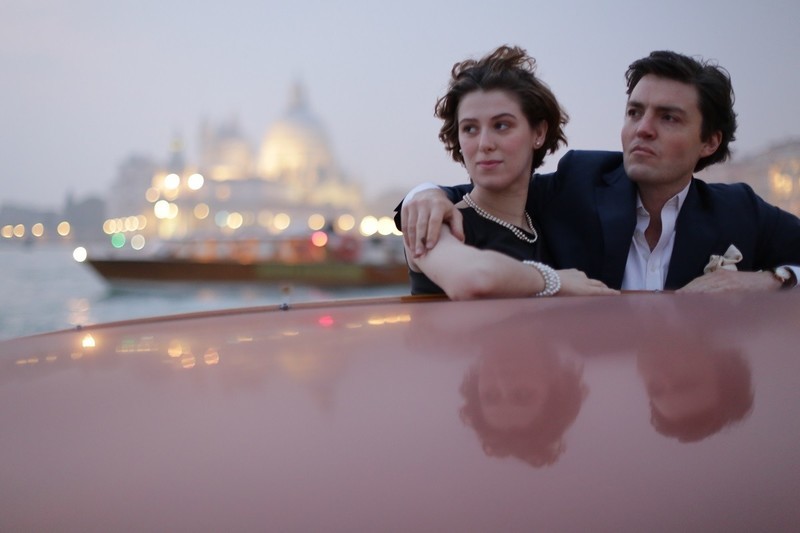
Is it quite a relief then when the shoot is over, or do you find you miss it too much? I find it with film festivals, watching three or four films a day for two weeks, I’m shattered and emotionally drained. Then when it’s over I just want it to start all over again.
I’m the same, it’s the same energy, exactly. I know that it will be some months, maybe even years before I’m in that position of shooting another film, because it takes me a long time to go from one project to the next. A shoot is the product of many months, even years of preparation, so it’s a rare thing and something to embrace entirely, not to waste a second of it.
You and Tilda Swinton go way back as well. It must be so comforting have someone like that around? To have a face that familiar and that friendly from your own past must be great to have in that professional capacity?
It was, it was. It surprised us both that it was so comfortable, and so inspiring and creative as well. It also surprised us that so many years have gone by where we haven’t worked together.
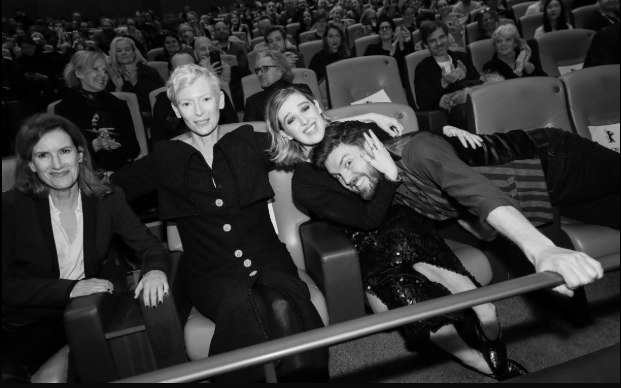
Do you have to seperate the friend from the professional on set, or do the two work in unison?
I think it’s just a particular way that I like working, and the same for Tilda, we’re both family people in a sense and filmmaking is so much about family, so yes, I don’t see it as professional in a way, it’s about engaging with what you’re doing, but it can feel very nice and very at home.
And in regards to working with her daughter Honor – there’s an energy that comes from somebody making their first movie, but that inexperience pose any challenges? She’s in almost every single scene, so what was it like having a central character who was new to this world?
I had to remind myself that she didn’t have any experience, because it seemed like it did, it came so naturally to her. I was so impressed with how she just took to it so easily and now she’s done the second film and she’s in every frame of the film, so there’s never a day off for her, never an hour off even, she’s in every single moment, so it’s hard for somebody, but she was incredibly focused and engaged and always produced what was necessary, and more, she constantly surprised me. She’s still at that very exciting stage in her life where she’s working out what she wants to do.
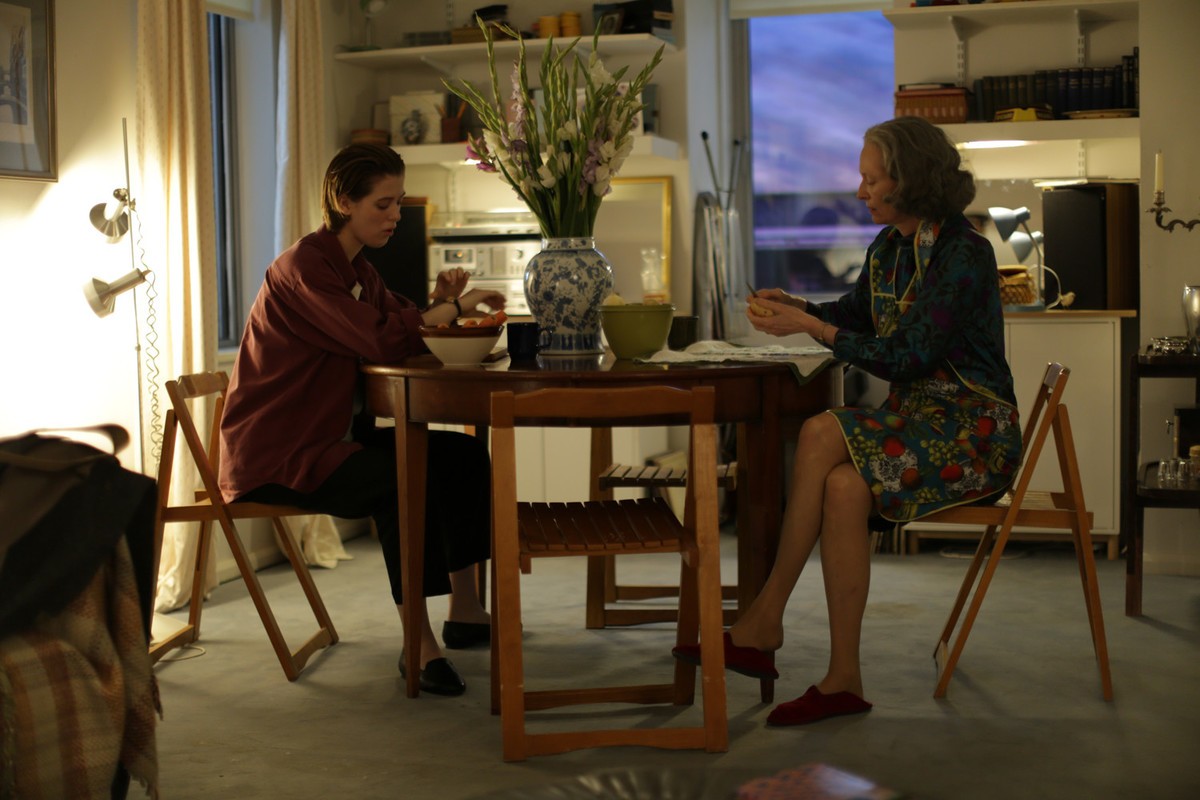
It sounded like her casting was quite accidental? Was she ever in mind early on?
No, I wish she had been in my mind early on, it would’ve saved me a lot of searching and I’d have been able to have more time with her before we started shooting, because yeah the idea occurred very late on, just a few weeks before we started, but thank goodness it did, because now I can’t imagine anyone else in that role other than her.
I also read that you didn’t give her a script. Was that true? And what was the idea behind that, to have her navigate her way around the story in a different way to the rest of the cast?
It was the same as I’d done with other non-actors, because I treated her as a non-actor because she hadn’t acted before. It was the same in Archipelago, there were a couple of characters, an artist and a cook and I filled them with non-actors, people who aren’t used to the shooting of a film, and I don’t want them to worry about what’s coming next, I wanted to encourage them to be in the moment, that’s why I’ve cast them, because I’m cast them probably very close to who they are and the profession that they do and I want them to be looking in that moment and not thinking or worrying about what is coming ahead in the story, and with Honor it just felt like, because of Julie and the character she is, it seemed interesting to not encumber her with how the story is progressing, I wanted her to experience it quite deeply as it came. However I did prepare her a little bit, I wanted her to feel at home with a camera so I lent her a stills camera and a super eight camera so she could get used to holding a camera and recording what she’s observing around her. So she had some preparation and some insight into who I was at that age.
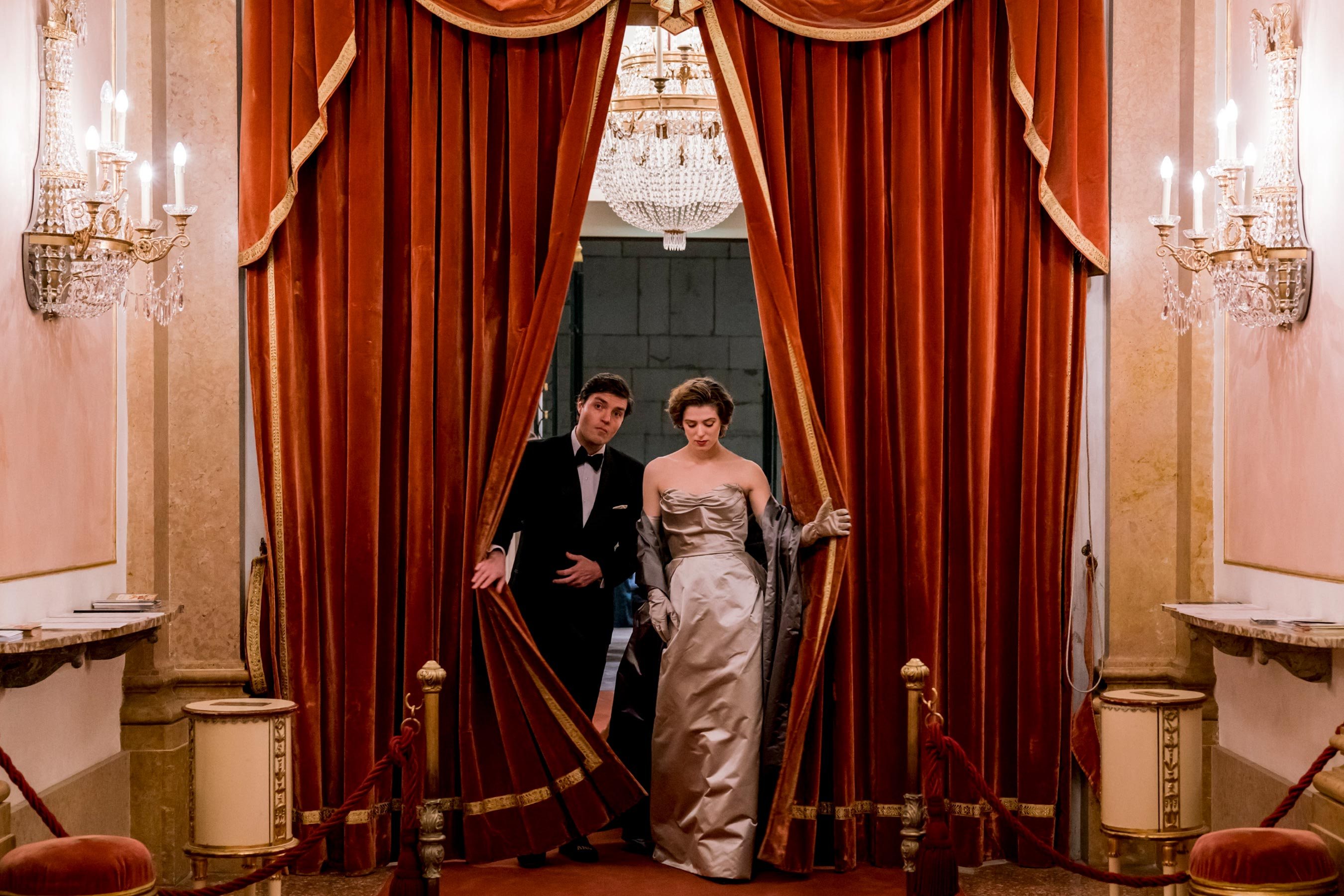
It’s a real ensemble of fantastic performers, but Tom is exceptional. I interviewed Paul Greengrass once who spoke about being on set for Captain Philips and there’s the scene when Tom Hanks breaks down and he said the whole set just froze and were silent, and there was this palpable energy where everybody was just in awe. There are some scenes when Tom is incredible – were there moments like that, or does that usually happen for you afterwards in the edit?
No, it happens many times when you’re shooting, and there was that moment, well, a number of moments in The Souvenir where both Tom and Honor took our breath away. Having just shot part two, I found the crew so engaged with what we were doing and constantly interested and surprised by the performances.
I wouldn’t call the film light, but there is that Richard Ayoade cameo, and I remember sitting there in the cinema, and though it may be my favourite scene, it almost feels like that scene shouldn’t work, because it is more overtly comedic and actually feels slightly out of place, tonally. What was the decision to throw in a scene, in the middle of a heavy drama, that had a light edge to it? It works perfectly, but it was a risky move in some ways.
Well I suppose I didn’t think of it as something that would stand out in that way, and I just cast the film and I cast Richard and he brings what he brings, and the scene is shaped and it becomes what it is. I don’t sit outside of it thinking – is this going to fit in? But I feel I’ve taken more of those risks in part two which I’m really excited about where there’s a key change. It’s exciting to me, as you say it’s risky. But then it would be so boring without risk, that is the key to how I like to work, I’m constantly taking risks, in the casting, I don’t do auditions so I don’t know how somebody is going to work out, they just arrive on the day, and I’m flying with my instinct.
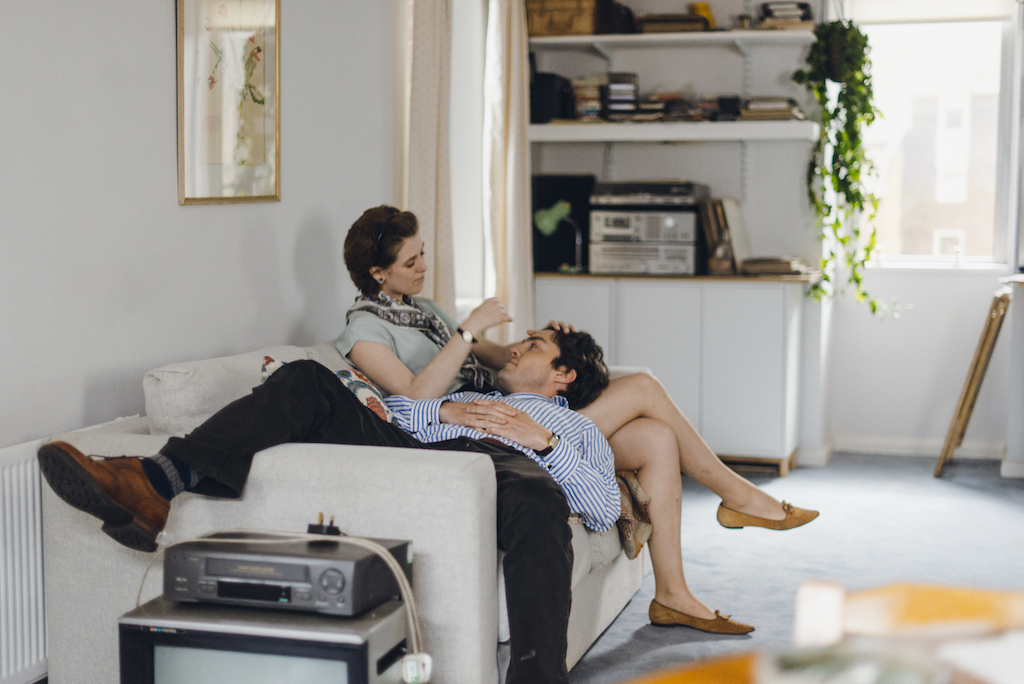
So Richard is back for part two?
Yes, he is.
Even though the film is set a while ago, there are so many parallels with things from today, mostly in just what it’s like to be a young creative living in London. Do you think it was harder then compared to now? Though that was the Thatcher-era of Britain, we have this issue of rent prices in London, companies wanting people to work for so little, if at all.
Maybe it’s just the perspective now, but it feels like it was easier then, but then if only I’d realised that as a young filmmaker then and pushed myself even more than I did, because I think doors could open then. If you had ambitions or you had ideas, you could realise them, and now I’m not so sure, I think it’s more difficult. It’s also just that there’s also so much more out there, there’s so many more films being made, they’re not all being distributed. Artistically now it feels like there’s a lot more stuff out there, so I think it’s more of a challenge to be heard above the noise, whereas back then there was less noise in a way. There were a lot of challenges in terms of Thatcher and unemployment, and of course we have all of this over again now, but despite the climate then for an artist it was a wonderful time.
Do you ever think about what it might’ve been like had you started out now, and what would’ve ben different?
I haven’t really thought about that, I’ve thought more, because of where my head has been, more about how I should’ve pushed more on some of my projects back then.
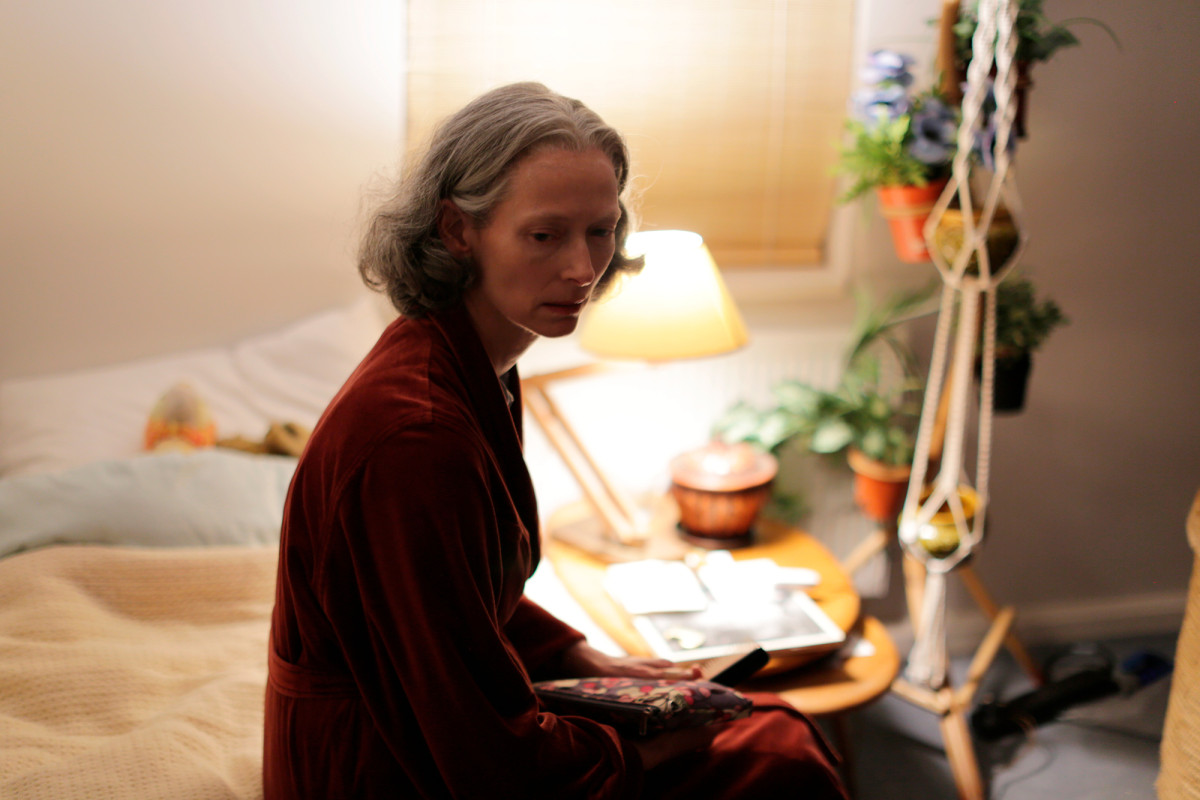
There’s been a criticism I’ve seen levelled at the movie that I’ve read online, which is people saying they struggle to relate to it, because these characters have more money, citing ‘posh people problems’, following this notion that because these people are privileged, their problems are less important. Have you heard that from anyone, and what’s your response to that take?
Well it doesn’t surprise me at all. In a funny kind of way my eyes light up because I love a bit of a challenge, but I also think that is very short-sighted. It’s also a misunderstanding about the film because it’s not about those people, and anyway which people? Because they’re not all privileged in the film. I’m looking at a spectrum of different characters from different characters and the point of the character Julie is her empathy and she doesn’t want to be seen in that way. But the film isn’t about that, it’s about something that we all experience at some point in our lives, and that’s loss. I don’t think people want to look at the deeper meaning of it for whatever reason, and we are so obsessed with class in this country. Interestingly this doesn’t come up when I’m in the States promoting the film, that word privilege, or class doesn’t come up.
The film is about love, loss and addiction, which transcends class.
Yeah, yeah. And a dysfunctional relationship, which all of us probably at some point in our lives, in whatever way, have had a relationship that hasn’t worked out. But I am interested in hearing different people’s opinions because it’s not interesting as a filmmaker, or as an artist to be patted on the back. I like to be challenged and I like to think beyond what I’ve done, and of course people feel different things. But I am sometimes interested when I hear something like that, I wonder whether there is something deeper in there, a block somewhere, and why is there that block? Because I don’t feel that I am that filmmaker obsessed with those things, I have rather been put in that category of a filmmaker dealing with that subject, but that’s not actually what I’m interested in. But I’m not going to please everybody, and that’s something that if you’re making work you’re going to have to get over – you’re not going to please everybody, and I find that a challenge. Like when I have got to do another Q&A I always go into the room at the end of the film and I look around and I’m very sensitive to the atmosphere, did people like it? Did they get bored? Were they moved? You’re always trying to gage the temperature in a way.
You’ve mentioned The Souvenir Part Two, now when I interview directors who do Marvel films or whatever, they’re contractually obliged on what they can and can’t say, but with you I guess it’s more what you’re willing to say. So what are you allowing people to hear, what don’t you mind being out there about the story?
Well the reason for not saying everything about part two is that I don’t know everything myself, as we only just shot it, we haven’t edited it yet. It’s also not wanting to build up an expectation I suppose. But at the same time, part two begins where part one left off, so a young woman still at film school embarking on her own films, and it’s a response to part one. The problem is, in order for me to fully tell you about part two I’d have to spoil part one for everybody, but yeah the whole piece, the two parts together, are the voyage of a young woman finding her voice.
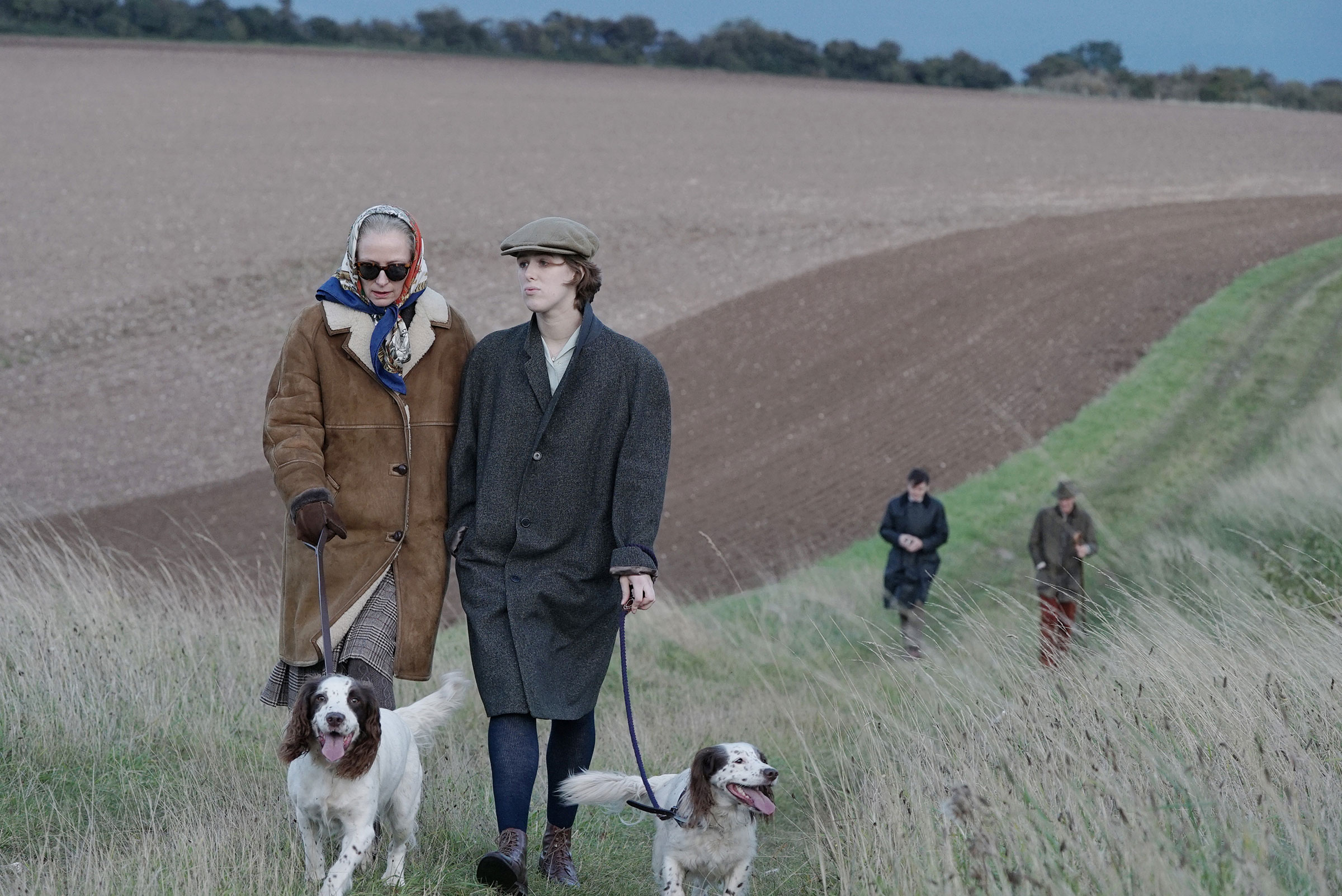
So was the idea for part two already in your mind from the offset, or did it come about after you finished the first movie?
They came at the same time, part one and part two were conceived as being one story. I wanted to shoot them back to back but we weren’t able to raise all the money to do that. Actually in the end I think it’s a good thing that I’ve had a bit of time to think about part two. It’s a film of its own right, they don’t have to be seen together.
Will it be called The Souvenir Part 2, or will it have a slightly different title?
I had thought about it, and at the moment it’s The Souvenir Part Two, but I have various subtitles. Maybe another title will emerge, but I think it will be The Souvenir Part Two.
It hasn’t come out in England yet of course, but it’s been so incredibly well-received at Sundance and Berlin – do you feel an element of pressure on this sequel? Because going into it people will have higher expectations, more so than with any of your other projects, based on the fact they may have loved the first one?
Yeah, it was one of the reasons why I wanted to shoot them back to back actually. Because I didn’t want the first one to come out before I made the second one because I didn’t want to be somehow put off making Part Two. In fact I made a decision knowing then we couldn’t shoot them back to back and that part one would be coming out first, that I wouldn’t read anything about part one before I went into the shoot for the sequel, and I kept to that, and that was a really good decision. Because even if I read positive things, I don’t think, ‘oh I better feature that character more because everybody likes them’ or whatever it might be. I just wanted to keep to my own journey of the story and that was a great thing because it meant that I went into part two with the same bravery as part one.

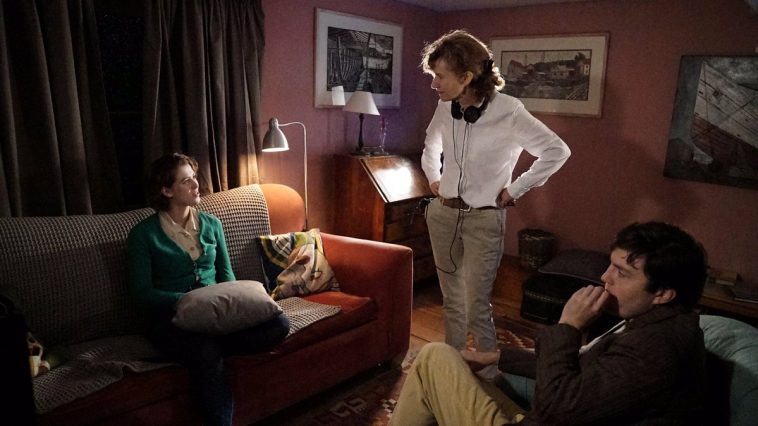

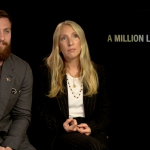


















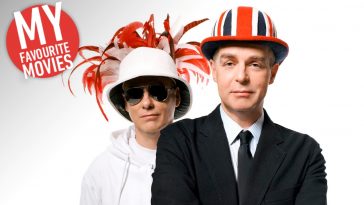


Leave a Comment